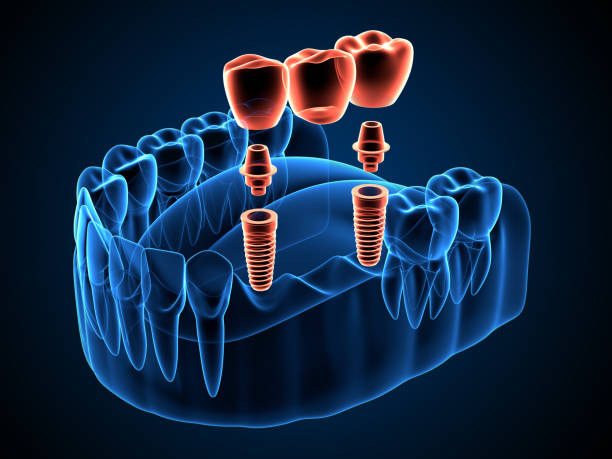Maintaining proper oral hygiene is essential for the longevity and functionality of dental crowns and bridges. While these prosthetic devices are designed to be durable, they still require regular care to ensure they remain in optimal condition. Here are some tips for long-term maintenance of Dental crown and bridges in Abu Dhabi to promote overall oral health:
1. Practice Good Oral Hygiene
- Brushing: Brush your teeth at least twice a day using a soft-bristled toothbrush and fluoride toothpaste. Pay special attention to the gum line and areas around the crowns and bridges.
- Flossing: Floss between your teeth and around the crowns and bridges daily to remove plaque and food particles that can lead to decay and gum disease.
- Use Interdental Brushes: Interdental brushes can be useful for cleaning hard-to-reach areas around dental crowns and bridges where regular flossing may be challenging.
2. Avoid Chewing Hard Foods
- Limit Hard Foods: Avoid chewing on hard foods such as ice, hard candies, nuts, and popcorn kernels, as these can potentially damage dental crowns and bridges.
- Be Cautious with Sticky Foods: Sticky or chewy foods like caramel and taffy can also pose a risk by pulling on the crowns or dislodging the bridge.
3. Protect Against Teeth Grinding
- Use a Nightguard: If you grind or clench your teeth while sleeping, wearing a nightguard can help protect your dental crowns and bridges from excessive wear and damage.
- Manage Stress: Stress management techniques such as exercise, meditation, or therapy can help reduce teeth grinding and clenching habits.
4. Maintain Regular Dental Check-ups
- Schedule Routine Check-ups: Visit your dentist regularly for check-ups and professional cleanings. Your dentist can monitor the condition of your dental crowns and bridges and address any issues before they escalate.
- Professional Cleaning: Professional cleanings help remove plaque and tartar buildup around the crowns and bridges, reducing the risk of decay and gum disease.
5. Be Mindful of Oral Habits
- Avoid Using Teeth as Tools: Refrain from using your teeth to open packages, tear tags, or bite on objects, as this can damage dental crowns and bridges.
- Quit Smoking: Smoking can contribute to gum disease and weaken the supporting structures of dental crowns and bridges. Quitting smoking can improve the longevity of your dental restorations.
6. Address Any Issues Promptly
- Seek Professional Advice: If you experience any discomfort, sensitivity, or notice damage to your dental crowns or bridges, contact your dentist promptly for evaluation and treatment.
- Don't Delay Repairs: Ignoring problems with dental crowns or bridges can lead to further damage and compromise the integrity of the restoration.
Conclusion
Proper maintenance of dental crowns and bridges is essential for preserving oral health and maximizing the longevity of these restorations. By practicing good oral hygiene, avoiding damaging habits, attending regular dental check-ups, and addressing any issues promptly, you can ensure that your dental crowns and bridges continue to function effectively for years to come.
FAQs
- How long do dental crowns and bridges last?
- With proper care and maintenance, dental crowns and bridges can last for many years, providing a long-term solution for damaged or missing teeth.
- Are dental crowns and bridges painful to get?
- Dental crown and bridge placement is typically a minimally invasive procedure that is well-tolerated by most patients. Local anesthesia is used to numb the area, ensuring a comfortable experience.
- Can dental crowns and bridges be whitened?
- Unlike natural teeth, dental crowns and bridges cannot be whitened with traditional whitening treatments. However, professional cleaning can help maintain their appearance.
- Do dental crowns and bridges require special care?
- Dental crowns and bridges require regular brushing, flossing, and dental check-ups, just like natural teeth. Avoiding hard foods and habits like teeth grinding can help prolong their lifespan.
- Are dental crowns and bridges covered by insurance?
- Many dental insurance plans cover the cost of dental crowns and bridges, especially when they are deemed medically necessary for restorative purposes.





Comments